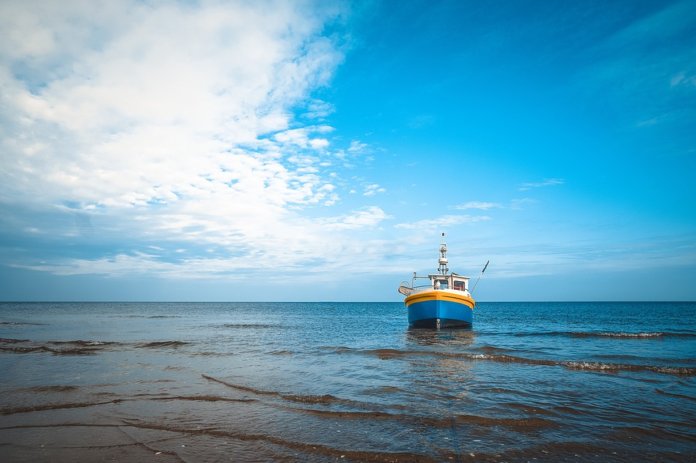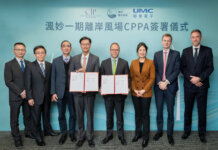NOAA Fisheries, the Bureau of Ocean Energy Management (BOEM) and the Responsible Offshore Development Alliance (RODA) have signed a 10-year memorandum of understanding (MOU) that brings together local and regional fishing interests with federal regulators to collaborate on the science and process of offshore wind energy development on the Atlantic Outer Continental Shelf.
RODA, which is a membership-based coalition of fishing industry associations and fishing companies, will work with NOAA Fisheries and BOEM to compile, develop and deliver information to address offshore development, fisheries management and ecosystem health. The partners cite the importance of both offshore wind and fishing to the U.S.’ economy.
“Any development on the Outer Continental Shelf must consider how these activities can affect current ocean users and the marine environment,” says BOEM’s acting director, Walter Cruickshank. “That is why working with federal, state and local agencies, fishing communities, and the public is such an essential part of our renewable energy program. We look forward to working with NOAA and RODA through early and constant communication to ensure that the most recent information is available to decision-makers.”
“With wind energy developing in the New England/Mid-Atlantic region, this collaboration comes at a crucial time,” notes Chris Oliver, assistant administrator for NOAA Fisheries, the primary federal agency charged with sustaining U.S. marine resources and habitats. “This memorandum of understanding will help achieve NOAA Fisheries’ strategic national goal of maximizing fishing opportunities while supporting responsible resource development.”
“The fishing industry has expressed its concern about the potential impacts of rapid large-scale wind energy development to coastal communities and sustainable fishing practices,” notes Annie Hawkins, executive director of RODA. “This agreement paves a way forward for fishing communities to give meaningful input to federal regulators in determining the future of our ocean resources.”
The MOU identifies several areas of mutual interest, which include the responsible planning, siting and development of offshore wind power and working with regional and local fishing interests. The parties agree to collaborate on engaging local and regional fishing interests in the offshore wind development process; identifying the most effective ways to bring fishing industry expertise and information into planning and development processes; and developing a collaborative regional research and monitoring framework to ensure decisions are based on the best available science.




